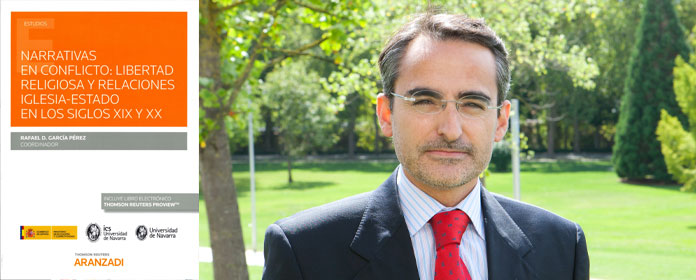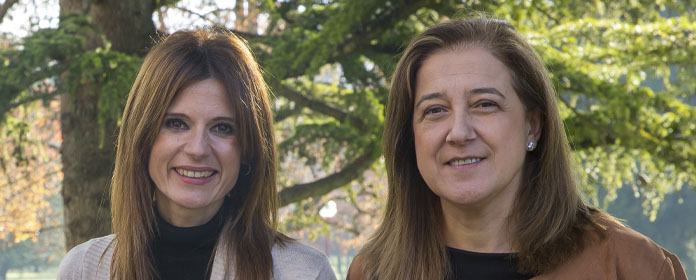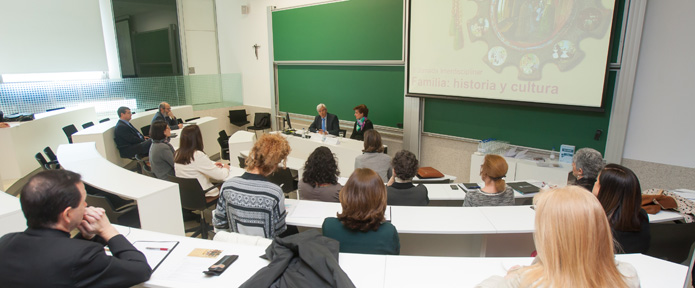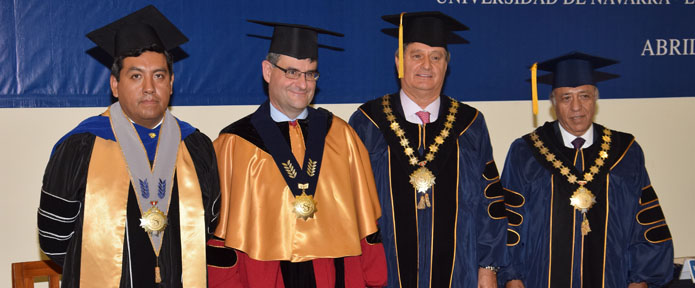A book analyses religious freedom and Church-State relations in Spain and Mexico in the 19th and 20th centuries.
It is edited by Rafael García Pérez and is part of a project that he directs in 'Religion and Civil Society' of the Institute for Culture and Society with funding from the Ministry of Economics

PHOTO: Manuel Castells
Rafael García Pérez, professor of the School of Law and researcher partner of the project 'Religion and Civil Society' del Institute for Culture and Society (ICS) of the University of Navarra, has coordinated the book Narrativas en conflicto: libertad religiosa y relaciones Iglesia-Estado en los siglos XIX y XX.
The Issue, published by Thomson Reuters Aranzadi, is the culmination of the project that Professor García Pérez led at the ICS under the same name with funding from the Ministry of Economics of the Government of Spain and the European Regional Fund development (ERDF).
As explained in the introduction, the new degree scroll "starts from the centrality of narratives and discourses in the legitimization of any constitutional order" and, in particular, "in the justification of the different solutions that during the nineteenth and twentieth centuries were given to the relations between Church and State in Europe and America, and to the regulation of religious freedom, understood in its broadest sense".
In addition, "it connects the use of narratives, typical of literature, with the history and political conflicts between these two important institutions in the countries studied, mainly Spain and Mexico," he says.
On the other hand, he analyzes the use in the political speech of motives or arguments taken directly from theological science, "topic still largely unpublished in the historiography of contemporary times," says Professor García Pérez.
The Issue is divided into three parts organized according to chronological and thematic criteria. The first part analyzes specific cases that show "the importance and variety at the same time of the narratives and political discourses related to religion in a broad sense that occurred mainly in Spain".
It includes works by Alberto Juan Felani Pintos, Juan Pablo Domínguez, Rebeca Viguera Ruiz, Serguio Cañas Díez, Rafael García Pérez, Pilar Arregui Zamorano and Faustino Martínez Martínez.
The second part, dedicated to the twentieth century, opens with papers "that analyze from different perspectives and different geographical locations the strategies and narratives of some sectors of liberal thought and Catholic thought, to defend what they understand to be their rights: the former in Mexico after the anticlerical Constitution of 1917 and the latter in Spain in the 1920s (1922-1923)".
The authors of the chapters are Paolo Valvo, Carmen José Alejos Grau, Ariadna Guerrero Medina, Mónica Fuster Cancio, Miguel Asensio Gómez, Rafael Ruiz Andrés, Javier Fernández Vallina, Rafael Escobedo Romero and Mercedes Montero.
The third section contains contributions that respectively analyze the place of religion and religious freedom in the public space in the works of Blasco Ibáñez and Stefan Zweig, by Blanca Cerdá Aznar and Alicia Duñaiturria Laguarda.
Church-State separationThe project in which the book is framed, which ends in December 2020, has as goal study the different historical narratives that during the nineteenth and twentieth centuries were built to defend religious freedom and the proper separation between Church and State in different European and American countries.
In this way, we have sought to highlight the existence in these centuries of narratives capable of mediating between the dominant liberal narrative, which affirms the incompatibility for this time between Catholicism and religious freedom, and the Catholic confessional counter-narrative that saw religious freedom as a threat to religion.




